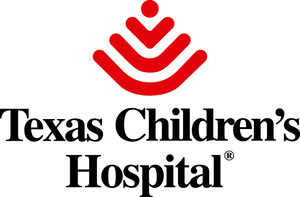Largest study on teen weight-loss surgery demonstrates reversal of type 2 diabetes and significant weight loss
HOUSTON, Nov. 6, 2015 /PRNewswire-USNewswire/ -- The results of the largest in-depth study of its kind on teen weight-loss surgery was published today in The New England Journal of Medicine to coincide with presentation at The Obesity Society Annual meeting in Los Angeles. Researchers report that three years after undergoing bariatric surgery, adolescents demonstrated significant improvements in their weight, metabolic health and quality of life.
Texas Children's Hospital, along with lead investigators at Cincinnati Children's Hospital Medical Center and three other sites around the country, conducted this research through a grant from the National Institutes of Health (NIH). Teen-LABS (Longitudinal Assessment of Bariatric Surgery) is a multicenter, prospective clinical study that examines the long-term safety and health effects of surgical weight-loss procedures and is the most comprehensive analysis of bariatric outcomes to date in adolescents.
Click here to learn more about the Adolescent Bariatric Surgery Program at Texas Children's.
The study enrolled 242 adolescents, ages 13 to 19, all of whom were severely obese with an average weight of 325 pounds before surgery. The participants had an average body mass index (BMI) of 53 kg/m2. Three years after surgery, average weight had decreased by more than 90 pounds, or 27 percent. More importantly, the majority of participants showed reversal of a number of key obesity-related health problems. Reversal of type 2 diabetes was seen in 95 percent and normalization of kidney function was seen in 86 percent. Hypertension corrected in 74 percent and lipid abnormalities reversed in 66 percent.
"Obesity is a serious health threat to millions of children and adolescents around the world, especially those who are considered severely obese," said Dr. Mary Brandt, director of the Adolescent Bariatric Surgery Program at Texas Children's and professor of surgery and pediatrics at Baylor College of Medicine. "Many of the patients we see in our program suffer from diseases usually seen only in adults. The findings of our study demonstrate that potentially life-threatening diseases, like diabetes, can be reversed in adolescents with severe morbid obesity."
As with any surgery, bariatric surgery is not without risks. The study found fewer than 5 percent of study participants had iron deficiency before surgery, but more than half had low iron stores three years after surgery, supporting the recommendation for monitoring of vitamin and iron supplementation in these patients. In addition, 13 percent of patients required additional abdominal surgery, most commonly gallbladder removal, during the three-years following their weight-loss surgery.
Limitations of the study include the fact that it is observational – not a randomized controlled trial – and the majority of study participants are Caucasian females. However, this study population represents the patient group seeking surgery at the participating clinical centers. In addition, while participants were followed for three years post-surgery, it is possible some of the health improvements seen may diminish and other health risks could emerge later. Thus, the longer follow-up of adolescents who have bariatric surgery through at least 10 years is critical.
"Through this data we now know surgical intervention can have a drastic impact on the serious health-related complications and comorbidities many of these children face due to their obesity. While further research is needed, intervening early could potentially have more substantial and longer-lasting implications than doing so later in life," Brandt added.
Teen-LABS is funded by the National Institute of Diabetes and Digestive and Kidney Diseases (NIDDK) at the NIH under grants UM1DK072493 and UM1DK095710. The study is being conducted at five clinical centers in the U.S., including Cincinnati Children's Hospital, Nationwide Children's Hospital, Texas Children's Hospital, the Children's Hospital of Alabama, the University of Pittsburgh Medical Center, and the University of Cincinnati.
About Texas Children's Hospital
Texas Children's Hospital, a not-for-profit health care organization, is committed to creating a healthier future for children and women throughout the global community by leading in patient care, education and research. Consistently ranked as the best children's hospital in Texas, and among the top in the nation, Texas Children's has garnered widespread recognition for its expertise and breakthroughs in pediatric and women's health. The hospital includes the Jan and Dan Duncan Neurological Research Institute; the Feigin Center for pediatric research; Texas Children's Pavilion for Women, a comprehensive obstetrics/gynecology facility focusing on high-risk births; Texas Children's Hospital West Campus, a community hospital in suburban West Houston; and Texas Children's Hospital The Woodlands, a second community hospital planned to open in 2017. The organization also created the nation's first HMO for children, has the largest pediatric primary care network in the country and a global health program that's channeling care to children and women all over the world. Texas Children's Hospital is affiliated with Baylor College of Medicine. For more information, go to www.texaschildrens.org. Get the latest news by visiting the online newsroom and Twitter at twitter.com/texaschildrens.
Media contact: Jenn Jacome
832-824-2679
[email protected]
SOURCE Texas Children's Hospital
Related Links
WANT YOUR COMPANY'S NEWS FEATURED ON PRNEWSWIRE.COM?
Newsrooms &
Influencers
Digital Media
Outlets
Journalists
Opted In






Share this article